To answer this question, we need to clarify: what do we mean by “learn a language” and what do we mean by “how long?” Let me explain.
Defining “Learning a Language”
First off, when we ask “how long does it take to learn a language?” what exactly are we talking about? Learning a language isn’t a binary process. It’s not like there’s a switch that flips from “I don’t speak” to “I speak perfectly.” It’s a gradual journey with several milestones along the way. To simplify, let’s define five categories of language proficiency:
- MASTER: You’ve achieved absolute mastery over the language, understanding and using it better than most native speakers. (Very few people ever reach this level.)
- ELITE: Your language skills surpass the majority of native speakers. You can effortlessly handle complex, nuanced topics.
- NATIVE (C1/C2): You’re virtually indistinguishable from a native speaker in everyday contexts. You effortlessly engage in conversations, read native literature, and watch and enjoy native media with ease.
- FLUENT (B1/B2): You speak smoothly enough for everyday conversations, but you still miss key vocabulary occasionally, making advanced conversations or engaging with native media challenging.
- BEGINNER (A1/A2): You’ve completed some basic language learning courses or apps. You manage simple interactions but struggle with expressing more complex ideas or following rapid conversations.
Even most native speakers haven’t truly mastered their language. Take English, for instance: the Oxford English Dictionary has about 600,000 words. However, it is estimates suggest that average native English speakers can recognize only 42,000 lemmas.
That’s why, when people ask how many languages I speak, I like to reply, “almost one.” It’s a fun way to reply and opens the door for an intellectual conversation about language learning. I also can’t stand it when people boast about speaking multiple languages! Knowing a few words in a handful of languages and saying you speak them isn’t just annoying; it’s dishonest. (See this blog post about fake language learners here.)
I also find it quite funny when people tell me how good my Portuguese is. It’s a kind of accidental backhanded compliment. When someone tells me, “Your Portuguese is really good,” what they are really saying is, “I can tell you aren’t native by your accent and pronunciation mistakes, but apart from that, you speak quite well.” In contrast, my friend Maciej, who learned English as his second language, completed high school and university through English, and speaks English better than most native speakers, never gets this kind of compliment. Why? Because his ability speaks for itself, and people just aren’t sure how native he is. I think people are even concerned he’s just a native speaker and they might end up looking like Dave Skylark from The Interview (2014) when he compliments Iggy Azalea, who is Australian, on how good her English is. That’s when you know you’ve made it!
So Really, How Long Does It Take to Learn a Language?
Back to the question—how long does it take to learn a language? The second thing we need to address is the “how long?” Saying you can be fluent in one year doesn’t really mean much. One year of intensive daily practice and immersion for, say, eight hours a day is drastically different from one year of casual app use (15-30 minutes per day).
It’s better to think in terms of total hours invested. Nonetheless, consistency and intensity are crucial. Spending 1,000 hours studying over a single year yields far better results than spreading those same hours across a decade. Why? Because language skills fade quickly without regular practice, and gaps in learning mean relearning and refreshing previous knowledge.
When people ask me how long I have been learning Portuguese, my best guess is between 600 and 1,200 hours of active learning. That includes reading books, watching series, speaking with locals, and using apps.
How Long Does It Take to Learn a Language? Which Language?
According to the U.S. Foreign Service Institute (FSI), language difficulty significantly impacts how long it takes to learn:
- Easy languages (Spanish, French, Portuguese): Around 600–750 hours to conversational fluency.
- Moderately challenging (German, Indonesian): Approximately 900 hours.
- Difficult languages (Hindi, Russian, Thai, Greek): Around 1,100 hours.
- Very difficult languages (Arabic, Chinese, Japanese, Korean): Over 2,200 hours to become conversationally fluent.
These benchmarks offer realistic expectations. Conversational fluency (B2) typically takes 600 to 1,100 hours, depending on the language’s complexity. Achieving native-like proficiency (C1/C2), however, usually demands significantly more sustained effort.
When you reach advanced proficiency, progress feels subtle, almost invisible. At this stage, vocabulary expansion becomes crucial—this is precisely where Link-King becomes invaluable. Link-King is specifically designed to help students expand their vocabulary. This is the missing ingredient advanced language learners need to bridge that challenging gap between C1 and C2 proficiency levels. The platform makes vocabulary growth noticeable, undeniable, and measurable. By continuously introducing and reinforcing new words through systematic exposure, Link-King ensures consistent progress in your language journey.
Ready to take your second language to the next level? Download Link-King and start today!


